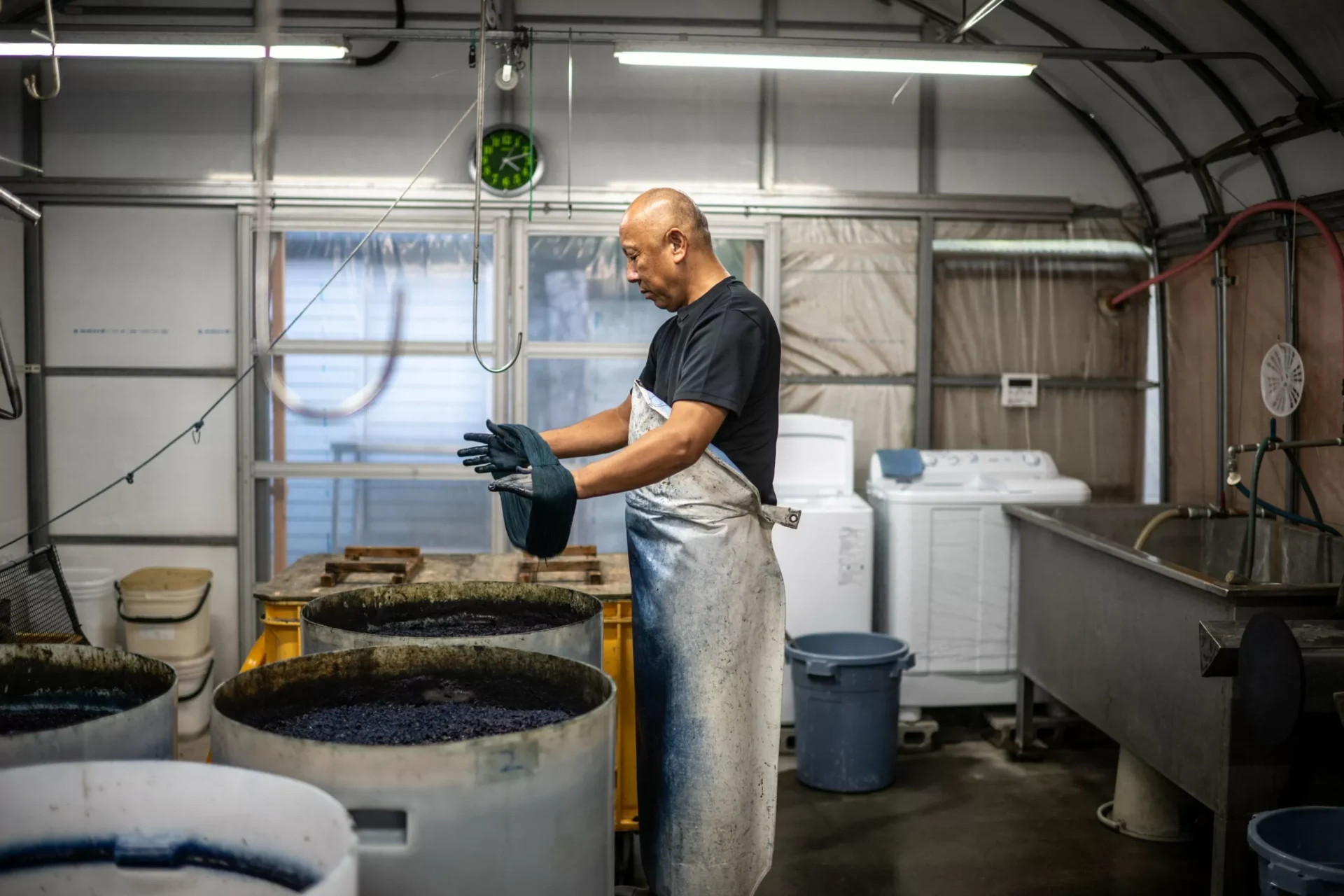Call it an Antidote to Fast Fashion: The Rise of Japanese Indigo-Dyed Jeans
In today’s fast-paced world, where trends come and go in the blink of an eye, the fashion industry has become synonymous with mass production and disposable clothing. But amidst this culture of fast fashion, there is a growing movement towards slow and sustainable fashion. And at the forefront of this movement are Japanese indigo-dyed jeans, handcrafted with traditional techniques and sold at a premium to denim connoisseurs worldwide.
Unlike the mass-produced jeans that flood the market, these Japanese jeans are a labor of love, taking weeks to create and using only natural indigo dyes. The process begins with the cultivation of indigo plants, which are then fermented and mixed with lime and other natural ingredients to create a deep blue dye. This dye is then used to hand-dye the cotton threads that will be woven into denim fabric.
But what sets these jeans apart is the use of vintage looms, some dating back to the 19th century, to weave the fabric. These looms, known for their clackety sound, create a unique texture and character in the denim, making each pair of jeans one-of-a-kind. The attention to detail and craftsmanship in every step of the process is what makes these jeans stand out in a sea of mass-produced clothing.
The popularity of Japanese indigo-dyed jeans can be traced back to the 1980s when a small group of denim enthusiasts in Japan started experimenting with traditional dyeing and weaving techniques. They were inspired by the rich history of indigo dyeing in Japan, which dates back to the 8th century. In the Edo period, indigo was considered a luxury item and was used to dye the clothing of the aristocracy. Today, these jeans are a symbol of Japanese heritage and craftsmanship, and their popularity has spread far beyond the borders of Japan.
One of the most well-known brands in the world of Japanese indigo-dyed jeans is Momotaro Jeans. Founded in 2006, the brand takes its name from a Japanese folklore character known for his strength and bravery. And just like its namesake, Momotaro Jeans is known for its quality and attention to detail. The brand’s jeans are hand-dyed using natural indigo and woven on vintage shuttle looms, resulting in a unique and durable denim fabric.
But it’s not just the traditional techniques and craftsmanship that make these jeans so desirable. They also have a lower environmental impact compared to mass-produced jeans. The use of natural indigo dyes and vintage looms reduces the amount of water and energy needed in the production process. And since each pair of jeans is made to order, there is no excess inventory or waste.
The popularity of Japanese indigo-dyed jeans has not gone unnoticed by the fashion industry. In recent years, major fashion brands have started incorporating these jeans into their collections, bringing them to a wider audience. This has also led to collaborations between Japanese denim brands and international designers, further cementing the status of these jeans as a must-have for denim enthusiasts.
But with popularity comes a price. These jeans come at a premium, with some pairs costing upwards of $500. However, for those who appreciate the craftsmanship and story behind each pair, the price is well worth it. And for those who can’t afford the high price tag, there are more affordable options available, making these jeans accessible to a wider audience.
In a world where fast fashion dominates, Japanese indigo-dyed jeans offer a refreshing alternative. They are a reminder of the beauty and value of slow and sustainable fashion, where quality and craftsmanship are prioritized over mass production. And as more people become aware of the impact of their clothing choices, the demand for these jeans is only expected to grow.
In conclusion, Japanese indigo-dyed jeans are more than just a fashion statement. They are a symbol of Japanese heritage, craftsmanship, and sustainability. And as the fashion industry continues to shift towards more ethical and sustainable practices, these jeans will continue to be a sought-after antidote to fast fashion. So the next time you’re in the market for a new pair of jeans, consider investing in a pair of Japanese indigo-dyed jeans and be a part of the slow fashion movement.

